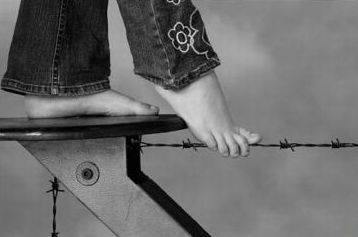The dialogue spilling from tired democratic ideas has to evolve my friends. I understand the pain that many on the right, AND left feel for this issue. These are very serious and valid concerns. Women can say what they want about pro-choice, and some of it is also valid, but there is a middle ground and dems and repubs must finally meet there. If any Dem enters the general election with the same old ROE v WADE dialogue, then shame on us for the degradation of the caring, creative mind that sources new ideas so we can come to the middle for national healing, compassion and unity.
Should a women retain the right to an abortion? Yes – as I don’t believe in stripping rights from women, just because the Goddess of Earth wants to experiment and women happen to be the birth canal. No human being should ever be stripped of their individual rights. But, about the fetus/baby.
There is FAR to much abortion. There needs to be FAR more education, leadership, guidance and real help for mothers who find themselves pregnant with an inconvenient child. As they say. There are so many families who want to have children and can’t. It is my feeling that the Dems need to step up right here. Until the moment arrives when there are no good and reliable parents who would take this child, there should be no abortion. I posit there would be very little abortion in this case. A nationwide database could be made available through medical doctors and hospitals that would act to put unborn child’s parents in immediate contact with a couple, or single, who would be willing to partner for the best interest of the unborn child. If either parent fails to show up for the process, from beginning to end, there would be stiff consequences for that. It is too easy for the male to take off, and the woman to be left managing it all – alone. That must change. Dems need to speak to it. Out loud.
The parents of youth having babies need to be guided – not fom a pro choice, pro life stance, but from a Pro Love approach. It will pay off. Just remember, the baby feels EVERYTHING the mother feels.
Yes, there would need to be help perhaps, financially, to help such a pogram work, but it would cost less than what we pay for all of the horrific effects caused by abortions, or unwanted children growing up in the world.
Dems need to STOP using the words Pro Choice. They are not accurate. But, you can’t just change the words; you have to change the perspective and the approach and the heart.
Dems need to come to the middle on this issue and if dem women don’t like it, let them vote for Huckabee.
We can’t stand in the left hand corner with our middle finger in the air and make things better. We must come to some real and meaningful compromise and we can be first to extend our hand. If conservatives feel a *genuine* effort, there is greater chance for a meeting of minds in the center. Not far left and not far right. Those are war zones we cannot afford any longer.
There are lots of things that can be done to remove the appeal for abortion. No young woman is happy about having one, but their stresses sometimes overtake them. This is where honest and centered compassion can facilitate a better outcome for all involved.
Abortion should be the very last option, and so time is of the essence. I don’t believe late term abortions should be legal. Every person involved has had plenty of time to make up their mind, except in the case of rape, incest, or health of the mother.
Obama, Edwards and Clinton….please. Don’t come to the table with the old stone monuments in tow. Take a breath and set your sites on a bright new world where we can get more creative, more caring, more tolerant, more understanding and we can be first to the table with that compromise.
The conservatives have their valid concerns. They need to be heard. This has to evolve and evolve now. Roe v Wade is a good law, but it isn’t perfect, and we can do better, without stripping women’s rights. But, to make abortion easy and convenient is not correct. When one makes a choice – there are consequences, and that is something the Dems fail to speak to in the right tone and with the correct perspective on the actual taking of life inside the womb. Until there is one of you who are hearing the larger vibe on this, you will be stuck in a cement that suffocates all opportunity for Grace.
Please
Filed under: abortion, politics, religion, TEENS, WOMEN | 2 Comments »


